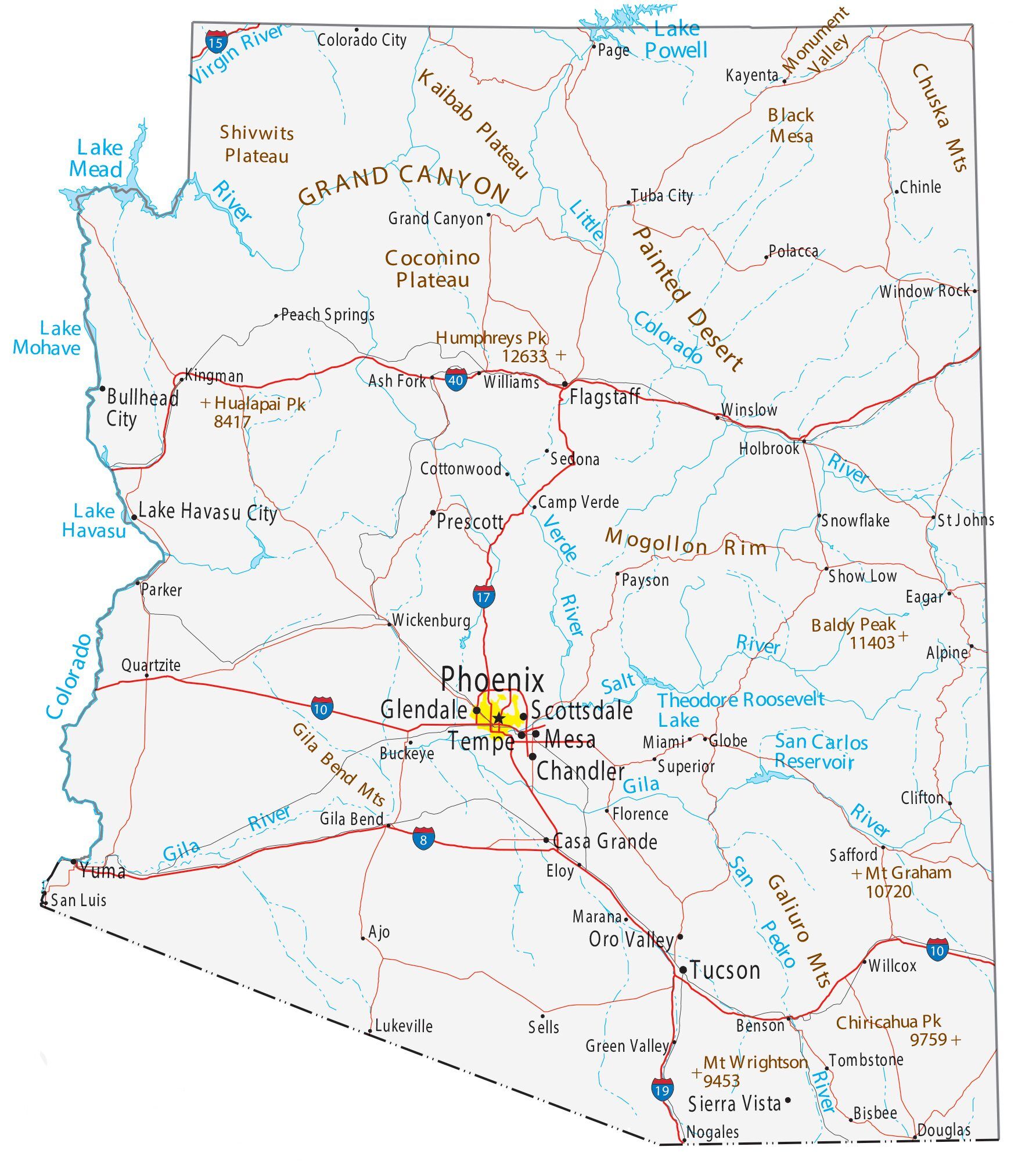Septic systems play a vital role in managing wastewater for homes and businesses, especially in rural areas. In Arizona, septic systems are regulated to protect the environment and public health. Following Arizona Septic Tank Requirements ensures proper installation, maintenance, and compliance with state laws. This article provides a comprehensive guide to Arizona’s septic system regulations, costs, and resources, highlighting key information from the Arizona Department of Environmental Quality (ADEQ).
- State-Specific Regulations in Arizona
- Legal Compliance in Arizona
- Costs Associated with Septic Systems in Arizona
- Local Resources and Contact Information
- Supportive Resources for Arizona Residents
- FAQs About Arizona Septic Tank Requirements
State-Specific Regulations in Arizona
1.1 Installation Permits
In Arizona, homeowners and contractors must obtain a permit before installing a septic system. The Arizona ADEQ septic laws require a detailed application, which includes site evaluation and soil testing reports. Permit costs vary depending on the county but generally range between $300 and $600. These permits are essential to ensure compliance with Arizona sewage system standards and environmental protection laws.
1.2 Septic Tank Size and Placement
Arizona has specific guidelines for septic tank size and placement. Tank size is determined by the number of bedrooms in a home or the volume of wastewater generated. For example, a three-bedroom home typically requires a tank with at least 1,000-gallon capacity.
Placement regulations under Arizona on-site sewage rules include minimum setback distances:
- 50 feet from water wells or surface water sources.
- 10 feet from property lines and structures.
- 100 feet from any public or private drinking water source.
These rules help prevent contamination of groundwater and ensure the system operates effectively.
1.3 Wastewater Disposal
Proper wastewater disposal is a cornerstone of Arizona wastewater rules. The state mandates soil testing, often referred to as a percolation test, before system installation. The test determines whether the soil can effectively absorb and filter wastewater. The disposal field, or drain field, must be designed to handle the daily wastewater load without risking overflow or contamination.
1.4 Maintenance and Pumping
Routine maintenance is crucial for keeping septic systems functional. Experts recommend pumping septic tanks every 3 to 5 years, depending on usage. Septic system maintenance in Arizona also includes inspecting the system for leaks, clogs, or other issues. Neglecting regular maintenance can lead to system failures, which are costly to repair and may result in environmental violations.
Legal Compliance in Arizona
2.1 Fines and Penalties
Failure to comply with Arizona ADEQ septic laws can result in fines ranging from $500 to $5,000. Homeowners may also be required to repair or replace non-compliant systems. Repeat offenders face stricter penalties, including potential legal action.
2.2 Environmental Protections
Arizona is committed to protecting its unique desert ecosystem. Arizona environmental regulations emphasize proper septic system management to prevent groundwater contamination. The ADEQ oversees enforcement, ensuring that all septic systems meet the state’s stringent environmental standards.
Costs Associated with Septic Systems in Arizona
3.1 Permit Fees
The cost of septic permits in Arizona typically ranges from $300 to $600, depending on the county and system size. Some counties may charge additional fees for soil testing and inspections.
3.2 Pumping and Maintenance Costs
Routine pumping in Arizona averages $250 to $500 per service. Maintenance costs, including inspections and minor repairs, vary but usually fall between $100 and $300 annually.
3.3 Installation Costs
Installing a new septic system in Arizona can cost between $5,000 and $15,000. The price depends on factors such as soil conditions, system type, and the size of the property. Advanced systems like aerobic treatment units may cost more but offer greater efficiency and environmental protection.
Local Resources and Contact Information
4.1 State Agencies
The Arizona Department of Environmental Quality (ADEQ) is the primary agency overseeing septic systems. Homeowners can contact their local county health departments for specific regulations and assistance.
- ADEQ Contact Information:
Website: www.azdeq.gov
Phone: (602) 771-2300
4.2 Certified Service Providers
Hiring a certified septic system professional ensures compliance with Arizona health department guidelines. The ADEQ maintains a list of state-certified contractors specializing in septic system installation and maintenance.
Supportive Resources for Arizona Residents
Arizona residents can access several resources to learn more about septic systems. The ADEQ website offers downloadable guides, including maintenance checklists and system inspection forms. Additionally, organizations like the Arizona Environmental Health Association provide educational materials on Arizona wastewater rules and environmental protection.
Conclusion
Adhering to Arizona Septic Tank Requirements is essential for protecting the environment, maintaining public health, and avoiding costly fines. From obtaining permits to routine maintenance, compliance with Arizona ADEQ septic laws and Arizona on-site sewage rules ensures your system functions effectively for years to come. For assistance, contact certified professionals or consult resources provided by the ADEQ.
FAQs About Arizona Septic Tank Requirements
1. Do I need a permit to install a septic system in Arizona?
Yes, a permit is required to install a septic system in Arizona. The Arizona ADEQ septic laws mandate that all installations meet specific standards, including site evaluations and soil testing. Permits typically cost between $300 and $600.
2. What are the guidelines for septic tank placement in Arizona?
Septic tanks in Arizona must follow placement rules to protect water sources and property integrity. Common requirements include:
- 50 feet from water wells or surface water.
- 10 feet from buildings and property lines.
- 100 feet from any public or private drinking water source.
3. How often should I pump my septic tank in Arizona?
Routine pumping is recommended every 3 to 5 years, depending on household size and water usage. Regular maintenance prevents system failures and helps comply with septic system maintenance in Arizona regulations.
4. What happens if I don’t comply with Arizona’s septic tank regulations?
Failure to follow Arizona ADEQ septic laws can lead to fines ranging from $500 to $5,000. In severe cases, non-compliance may result in mandatory repairs, system replacement, or legal action.
5. Are there unique environmental protections for septic systems in Arizona?
Yes, Arizona environmental regulations are designed to protect the state’s desert ecosystem and groundwater. The ADEQ enforces rules to prevent wastewater contamination, requiring systems to meet stringent design and maintenance standards.
6. How can I find certified septic system professionals in Arizona?
You can find state-certified contractors by visiting the ADEQ website or contacting your local health department. Hiring a certified professional ensures compliance with Arizona sewage system standards.
7. What are the average installation costs for septic systems in Arizona?
The cost of installing a septic system in Arizona ranges from $5,000 to $15,000. Factors like soil conditions, system type, and property size affect the total cost.
8. Where can I find resources about Arizona septic tank requirements?
The ADEQ website offers extensive resources, including guides and tools related to Arizona wastewater rules and septic system maintenance. Local health departments also provide valuable information and assistance.
Can I Install My Own Septic System in Arkansas?
West Virginia Septic Tank Regulations: What Homeowners Must Know
Vermont Septic System Regulations: What Homeowners Need to Know
Wisconsin Septic System Rules for Property Owners
Ohio Septic Tank Laws: What You Should Know
NH Septic Tank Size Requirements: A Complete Guide







